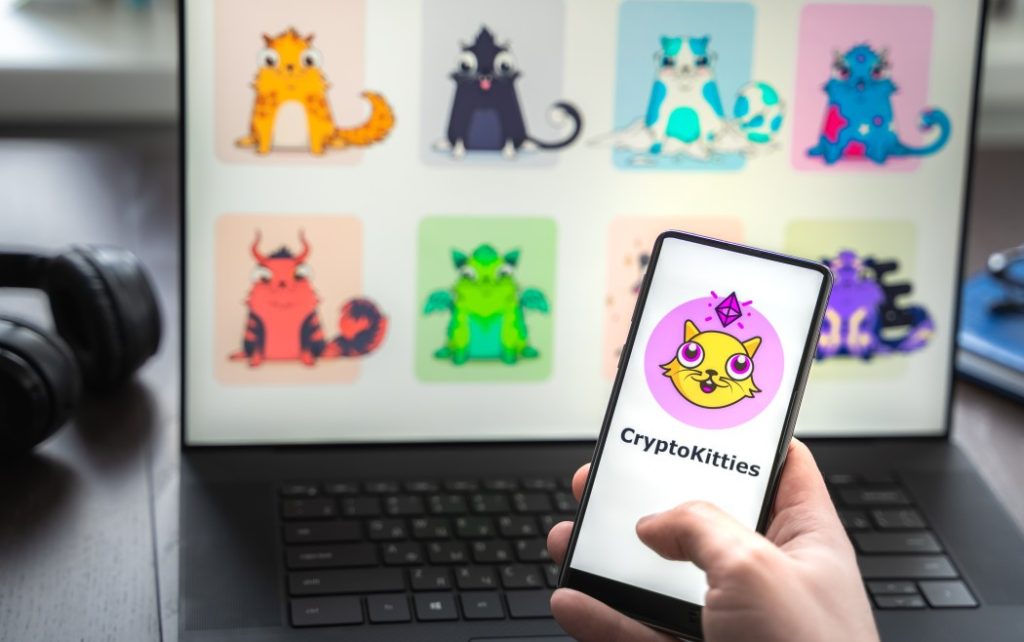Some think these crypto assets could revolutionise the way we think about property ownership.
These days, most people have heard of crypto assets, particularly cryptocurrencies like Bitcoin. But most people also find them confusing as hell. Which makes it difficult to know how seriously to take predictions that crypto is destined to upgrade the way we currently do a lot of important economic stuff. After all, cryptocurrencies still haven't become a standard way of paying for things in the UK, despite the fact they’ve been around for years and are currently owned by about 2.3 million Brits. Now crypto-enthusiasts are hyping up a new asset, non-fungible tokens (NFTs), which they say could revolutionise property rights. Are they right?
NFTs are digital records which link to pieces of information: a specific image, say, or a particular bit of text. While one Bitcoin is identical to any other Bitcoin, NFTs are all unique. At the moment, NFTs are most closely associated with digital art and entertainment, including gaming. In 2017, there was a craze for ‘CryptoKitties’ (see image), collectable pictures of cartoon cats where each cat image was tied to an NFT. Some digital artists have also started selling NFTs of their work for millions of dollars. NFTs are an answer to the question of how anyone can prove they hold a specific version of something that can be copied instantly and flawlessly, as many digital things can. That’s important to industries like the art world, where originals are assigned greater value. It’s like how you could buy a print of the Mona Lisa for a few pounds, while the actual painting is considered priceless.
Something that some people are particularly excited about is that NFTs could link to ownership documents like contracts and deeds. Indeed, a flat in Kyiv was recently sold via a NFT. Property rights ("property" here means anything you can have exclusive control over, including but not limited to houses) are woven into the fabric of our economy, so using NFTs for this purpose would have a big impact.
There would be advantages to this way of doing things. NFTs are stored in a way that is public and decentralised (i.e. not controlled by any single person, organisation or government), so the original contract terms can be easily checked and enforced. That could offer extra protection to people who would struggle with the cost of bringing a legal case against someone who broke an agreement. The digital infrastructure that NFTs exist within also provides an efficient way of ensuring everyone involved in swapping a crypto asset holds up their end of the bargain, because it won’t release payment until it has the NFT, and vice versa. This reduces the need for costly middlemen, such as property solicitors.
For NFTs to become mainstream, however, they will probably need to lose two of the aspects that are often given as the key reasons for using crypto assets in the first place: decentralisation and privacy. Cutting governments out of transactions involving property rights would be difficult and probably unadvisable, because they are the ones who actually enforce such rights, by setting the laws and punishing people who don’t follow them. Permission was sought from the Ukrainian government for that NFT flat-swap. If it hadn’t been, the buyer risked not being recognised as the legal owner and losing both their money and the flat. Similarly, governments are unlikely to be up for anonymous property swaps, especially of high-value items, given that it would be the preferred route for anyone trying to evade sanctions, taxes or scrutiny of their wealth.
Read our explainer on: new technology.

